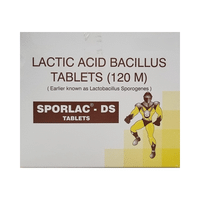Webdox 100mg/100mg Injection

food interaction for Webdox
alcohol interaction for Webdox
pregnancy interaction for Webdox
lactation interaction for Webdox
food
alcohol
pregnancy
lactation
No interaction found/established
Caution is advised when consuming alcohol with Webdox 100mg/100mg Injection. Please consult your doctor.
CAUTION
Information regarding the use of Webdox 100mg/100mg Injection during pregnancy is not available. Please consult your doctor.
CONSULT YOUR DOCTOR
Information regarding the use of Webdox 100mg/100mg Injection during breastfeeding is not available. Please consult your doctor.
CONSULT YOUR DOCTOR
SALT INFORMATION FOR Webdox
Doxycycline(100mg)
Uses
Doxycycline is used in the treatment of bacterial infections and acne.
How it works
Doxycycline is an antibiotic. It stops bacterial growth by preventing synthesis of essential proteins required by bacteria to carry out vital functions.
Common side effects
Vomiting, Nausea, Diarrhea, Photosensitivity, Rash, Discoloration of teeth, Liver toxicity, Hemolytic anemia, Dyspepsia, Anaphylactic reaction, Jarisch-Herxheimer reaction, Headache, Loss of appetite, Fast heart rate, Hypotension (low blood pressure), Hepatitis (viral infection of liver), Abnormal liver function, Low blood platelets, Decreased white blood cell count (neutrophils), Increased white blood cell count (eosinophils), Drug rash with eosinophilia and systemic symptoms (DRESS) syndrome, Bulging fontanelle, Benign intracranial hypertension (high blood pressure), Ringing in ear, Joint pain, Muscle pain, Esophagitis, Esophageal ulcer, Stevens-Johnson syndrome, Enterocolitis, Inflammatory lesions, Difficulty in swallowing, Glossitis (tongue inflammation), Toxic epidermal necrolysis, Exfoliative dermatitis, Erythema multiforme, Pseudomembranous colitis, Clostridium difficile associated diarrhea
Vitamin C(100mg)
Uses
Vitamin C is used in the treatment of nutritional deficiencies.
How it works
Vitamin C is a vitamin that provides essential nutrients.
Common side effects
No common side effects seen
SUBSTITUTES FOR Webdox
1 Substitutes
1 Substitutes
Sorted By
 Rs. 1100pay 29% more per Injection
Rs. 1100pay 29% more per Injection
Expert advice FOR Webdox
- Your doctor has prescribed Doxycycline to cure your infection and improve symptoms.
- Take it with food and plenty of water to avoid stomach upset.
- Do not skip any doses and finish the full course of treatment even if you feel better. Stopping it early may make the infection to come back and harder to treat.
- Take it while you are sitting or standing, to prevent any throat irritation. Do not lie down for at least 30 minutes after taking Doxycycline.
- Diarrhea may occur as a side effect but should stop when your course is complete. Inform your doctor if it doesn't stop or if you find blood in your stools.
- Avoid excessive sun exposure and use sunscreen and protective clothing when outdoors.
- Inform your doctor if you are pregnant, planning to conceive or breastfeeding.
Frequently asked questions FOR Webdox
Doxycycline
Q. Can I drink milk while taking Doxycycline?
No, you should avoid using milk and milk products while taking Doxycycline. Consuming dairy products along with Doxycycline can decrease its absorption from the stomach, which may lead to inadequate affect of this medicine.
Q. How long after taking Doxycycline can I eat?
It is best to wait for 2 hours after consuming Doxycycline. Consuming food along with Doxycycline may decrease its absorption from the stomach.
Q. Can I take Doxycycline with food if its causing stomach upset?
Yes, you can take Doxycycline with food if its causing you stomach upset. However, avoid consuming milk and milk products 1 hr before and 2 hr after taking this medicine.
Vitamin C
Q. What is Vitamin C?
Vitamin C consists of a water-soluble vitamin known as vitamin C. Vitamin C is also known as L-ascorbic acid or ascorbate. It cannot be stored for long in our body as it is water soluble. Therefore, it should be taken from food like tomatoes and citrus fruits like oranges to maintain sufficient levels of vitamin C in the body.
Q. Is Vitamin C necessary?
Vitamin C is used if your diet does not provide enough vitamin C. It can also be used to treat certain conditions caused due to low levels of vitamin C in the body. However, it would be best to consult your doctor before taking Vitamin C to get maximum benefit.
Q. Why is it important to take vitamin C in your diet?
Vitamin C has many beneficial properties. Vitamin C helps in the growth and repair of tissues of bones, cartilage, tendons, skin, hair, muscles and many more. Along with that, it helps in wound healing and also enhances absorption of iron in our body. Excess of free radicals can speed up the ageing process, vitamin C due to its rich antioxidant properties help to reduce the harmful effects of these free radicals. Vitamin C is very crucial for bone and teeth health. It improves vision and also regulates the blood cholesterol levels. Owing to its numerous benefits, it is very important to take an adequate amount of vitamin C in your diet.






















